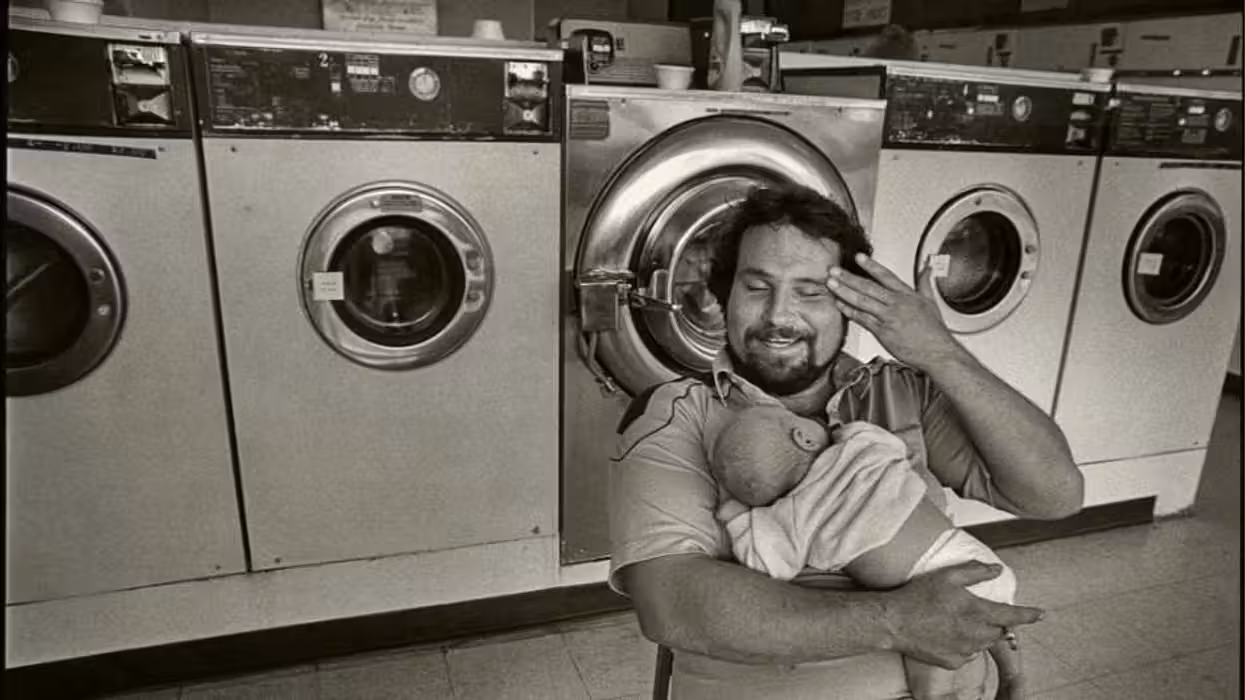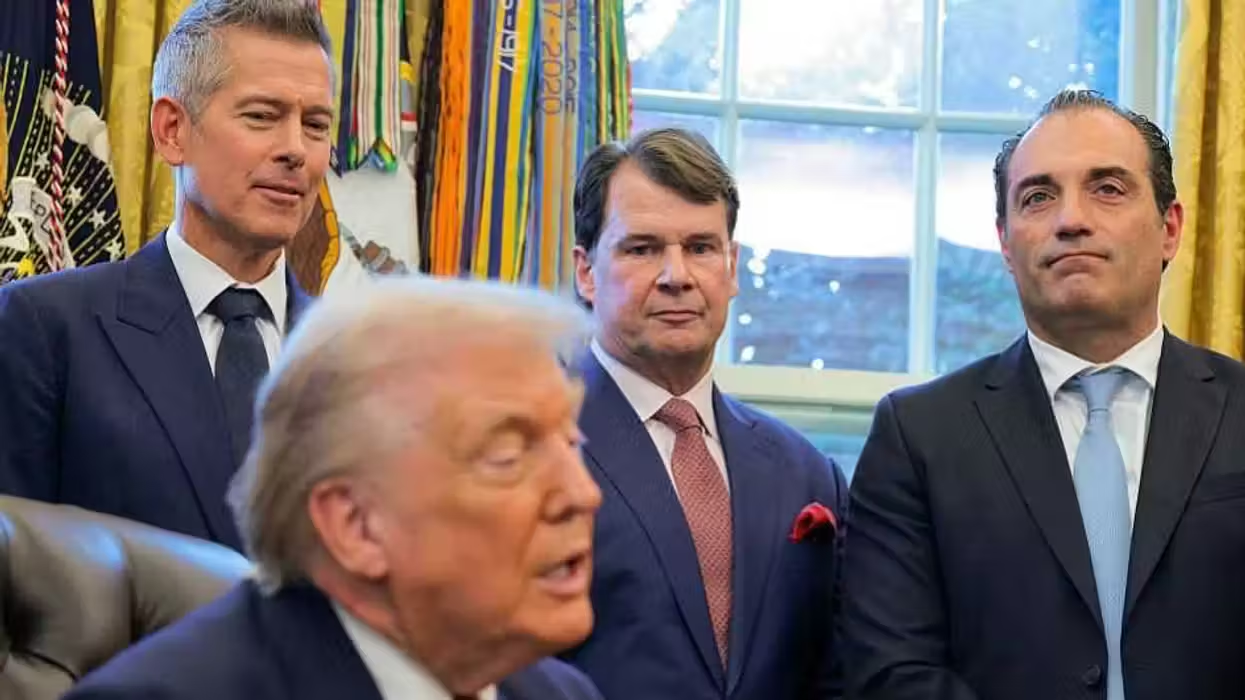
© 2025 Blaze Media LLC. All rights reserved.
If unions truly did not want to represent so-called “freeloaders,” they could well do so by insisting on members-only contracts in both the private and public sector.
 Union members from around the country rally at the Michigan State Capitol to protest a vote on Right-to-Work legislation December 11. (Photo: Bill Pugliano/Getty Images)
Union members from around the country rally at the Michigan State Capitol to protest a vote on Right-to-Work legislation December 11. (Photo: Bill Pugliano/Getty Images)
Michigan’s historic passage of right-to-work on Wednesday is a victory not only over forced unionization but over misinformation as well. For decades, union bosses and their political puppets have spread half-truths and straight-up lies in a desperate attempt to shift public opinion towards saving union-shop laws – where workers are compelled to pay dues whether they like it or not.
One of these myths was expressed by President Barack Obama on a trip last week to the Daimler Detroit Diesel plant in Redford, Michigan. Before a packed factory of union supporters, the Commander-in-Chief claimed that right-to-work laws “take away your rights to bargain for better wages and working conditions.” This statement makes it seem as if right-to-work is an all-out prohibition on unionization, which could not be farther from the truth.
In reality, right-to-work offers employees the choice to join a union and “bargain for better wages and working conditions.” Union enthusiasts can still join and sing “Solidarity Forever” if it fits their fancy.
The second myth that often surrounds right-to-work battle is the claim that workers who opt out of paying dues are “freeloaders.” After all, these workers are usually still represented by the union at the bargaining table even if they choose not to join. In such a case, they reap the benefits of collective bargaining without incurring the costs – a classic free-rider problem.
This half-truth was particularly present in Michigan last week, with State Representative Tim Greimel proclaiming, “This really is not about so-called right to work or so-called freedom to work, it’s about freedom to freeload.” Grumblers like Greimer are only half-right in their complaint. While it is true in the private sector that unions almost always represent non-members as well, this is not the fault of right-to-work but rather that of the unions. As James Sherk of the Heritage Foundation explains:
The [National Labor Relations Act] does not require unions to bargain as exclusive representatives. It enables them to do so — an important difference. Unions may bargain on behalf of every worker in the company. But the Supreme Court has ruled that the NLRA’s protections are “not limited to labor organizations which are entitled to recognition as exclusive bargaining agents of employees . . . ‘Members only’ contracts have long been recognized” (Retail Clerks v. Lion Dry Goods, 1962). Unions can negotiate contracts that apply only to dues-paying members and exclude non-dues-paying members.
Thus, the supposed free-rider problem only arises in private sector labor relations when a union chooses to exclusively represent non-union workers as well. Employees who opt-out of paying dues have no say in the matter at all. Rather, private sector unions almost always choose to represent non-members as well to maximize their influence at the bargaining table. After all, representing everybody has more pull in mediation than only representing some.
As for the public sector, it is true that right-to-work preserves exclusive representation among government employees who opt out of unions. But, again, this is not the fault of the workers. States could construct their public labor laws to only permit members-only bargaining agreements if they so choose. But, they don’t because, again, unions are incentivized to be the exclusive representative in collective bargaining.
In short, if unions truly did not want to represent so-called “freeloaders,” they could well do so by insisting on members-only contracts in both the private and public sector. Perhaps such a policy would make more workers stick to their unions by paying dues and reaping the rewards of collective bargaining. Or, perhaps union membership will dwindle even further as non-members realize that they can do just fine on their own two feet.
Either way, unions should not be afraid of members-only agreements if they truly believe they’re good for workers and their members will stand by their side without force. But, until then, they have no right to complain about a freeloader fairytale.
Want to leave a tip?
We answer to you. Help keep our content free of advertisers and big tech censorship by leaving a tip today.
Want to join the conversation?
Already a subscriber?
more stories
Sign up for the Blaze newsletter
By signing up, you agree to our Privacy Policy and Terms of Use, and agree to receive content that may sometimes include advertisements. You may opt out at any time.
Related Content
© 2025 Blaze Media LLC. All rights reserved.
Get the stories that matter most delivered directly to your inbox.
By signing up, you agree to our Privacy Policy and Terms of Use, and agree to receive content that may sometimes include advertisements. You may opt out at any time.






